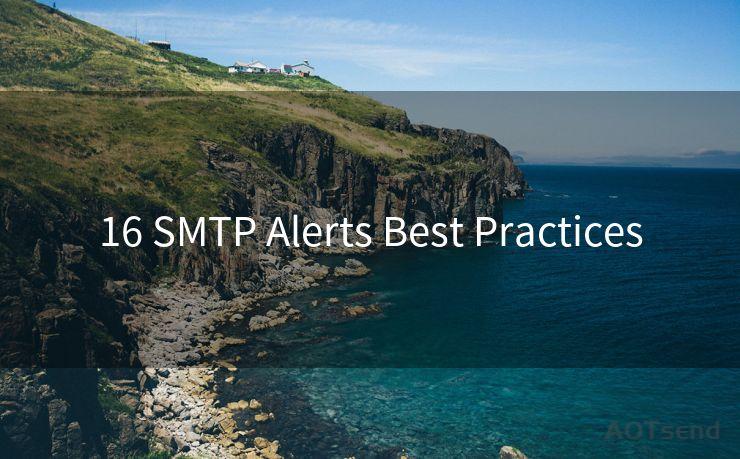16 SMTP Alerts Best Practices




When it comes to email notifications, SMTP (Simple Mail Transfer Protocol) alerts play a crucial role in keeping users informed about important events or changes. Implementing SMTP alerts effectively can significantly enhance user experience and system reliability. Here are 16 best practices to follow for setting up and managing SMTP alerts:

1. Clear and Concise Messaging
Ensure that alert messages are clear, concise, and to the point. Avoid using jargon or complex language that might confuse recipients.
2. Relevant Subject Lines
Craft subject lines that accurately reflect the content of the alert. This helps recipients quickly understand the nature of the message.
3. Timely Delivery
Send alerts promptly when an event occurs. Delayed notifications can reduce their effectiveness and may lead to confusion or missed opportunities.
4. Personalization
Personalize alerts by addressing the recipient directly and including relevant details such as their name or account information.
5. Frequency Management
Avoid sending too many alerts, which can lead to alert fatigue. Strike a balance between keeping users informed and not overwhelming them.
6. Unsubscribe Option
Always provide an unsubscribe option in case users no longer wish to receive SMTP alerts.
7. Secure Communication
Ensure that SMTP communications are encrypted, especially when transmitting sensitive information. Use protocols like SMTPS or SMTP over SSL to secure data transmission.
8. Testing and Validation
Regularly test SMTP alerts to ensure they are working properly and reaching the intended recipients. Validate all links and information included in the alerts.
9. Mobile Optimization
Optimize alerts for mobile devices, as many users check their emails on the go. Ensure that the layout and formatting are mobile-friendly.
10. Content Filtering
Implement content filtering to prevent spam or malicious content from being sent via SMTP alerts.
11. Reliable SMTP Provider
Choose a reliable SMTP provider with a good reputation to ensure deliverability and avoid issues like blacklisting or bouncing.
12. Monitoring and Logging
Set up monitoring and logging mechanisms to track the delivery and open rates of SMTP alerts. This helps identify and troubleshoot any issues.
13. Feedback Loop
Establish a feedback loop to collect recipient feedback and improve the quality and relevance of future SMTP alerts.
14. Compliance with Regulations
Ensure that SMTP alert practices comply with relevant email marketing and privacy regulations, such as CAN-SPAM, GDPR, or CCPA.
15. Template Customization
Create customizable templates for different types of alerts to maintain consistency and professionalism.
16. Regular Review and Update
Regularly review and update SMTP alert practices to reflect changes in user preferences, technology, and regulations.
By following these 16 SMTP Alerts Best Practices, organizations can ensure effective and efficient communication with their users, enhancing customer satisfaction and loyalty. Implementing these practices will not only improve the quality of notifications but also protect the organization's reputation and comply with relevant regulations.
🔔🔔🔔
【AOTsend Email API】:AOTsend is a Managed Email Service for sending transactional emails. Support Email Types: reminders, authentication, confirmations, notifications, verification codes, invoices, password resets, account activations, billing statements, two-factor authentication (2FA), and one-time passwords (OTP) emails, etc. $0.28 per 1000 Emails. 99% Delivery, 98% Inbox Rate.
You might be interested in:
Why did we start the AOTsend project, Brand Story?
What is a Managed Email API, How it Works?
Best 25+ Email Marketing Platforms (Authority,Keywords&Traffic Comparison)
Best 24+ Email Marketing Service (Price, Pros&Cons Comparison)
Email APIs vs SMTP: How they Works, Any Difference?




Scan the QR code to access on your mobile device.
Copyright notice: This article is published by AotSend. Reproduction requires attribution.
Article Link:https://www.mailwot.com/p6906.html



